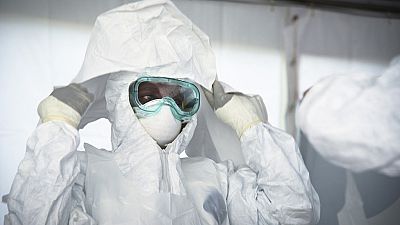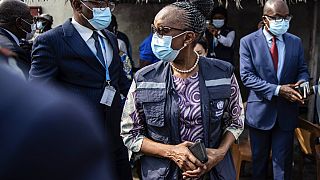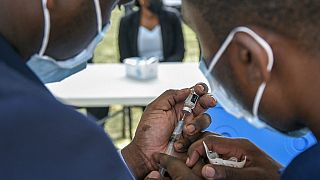Ghana
Ghana has reported two suspected cases of Marburg virus, a highly infectious disease believed to be in the same family as the virus that causes Ebola.
This comes after a preliminary analysis of samples taken from two patients from Ghana's southern Ashanti region both of whom died turned up positive.
The samples have been subsequently forwarded for full confirmation to the Pasteur Institute in Dakar, Senegal.
The two patients had earlier been taken to a local hospital with symptoms including diarrhoea, fever, nausea and vomiting, World Health Organisation said in a statement.
The WHO categorises the Marburg virus disease as highly infectious hemorrhagic fever in the same family as Ebola is spread to people by fruit bats and transmitted among people through direct contact with bodily fluids of infected people and surfaces.
A graphic online report states that 34 contacts have been identified and are under quarantine being monitored for the maximum incubation period of 21 days.
Marburg is potentially very harmful and deadly: Case fatality rates in past outbreaks have ranged from 24% to 88%, WHO said.
"Preparations for a possible outbreak response are being set up swiftly as further investigations are underway," WHO said, adding that it is deploying experts to support health authorities in Ghana.
If confirmed as Marburg, the cases would be the first in Ghana and the second in West Africa. Guinea confirmed a single case detected in August last year. The outbreak in Guinea was declared over five weeks later, WHO said.
Previous Marburg outbreaks and individual cases have appeared in Angola, Congo, Kenya, South Africa and Uganda, according to WHO.













01:07
WHO reports rapid spread of Mpox with 17 deaths in Africa over recent weeks
01:14
Cholera surges globally as vaccine shortfalls and poverty fuel resurgence
00:31
RSF Commander admits "violations" after hundreds of civilians reportedly killed in el-Fasher
01:28
WHO leads first medical evacuations from Gaza Strip since ceasefire
00:28
DRC begins countdown to end of Ebola outbreak as last patient recovers
Go to video
New HIV prevention injection rolls out to end new cases by 2030